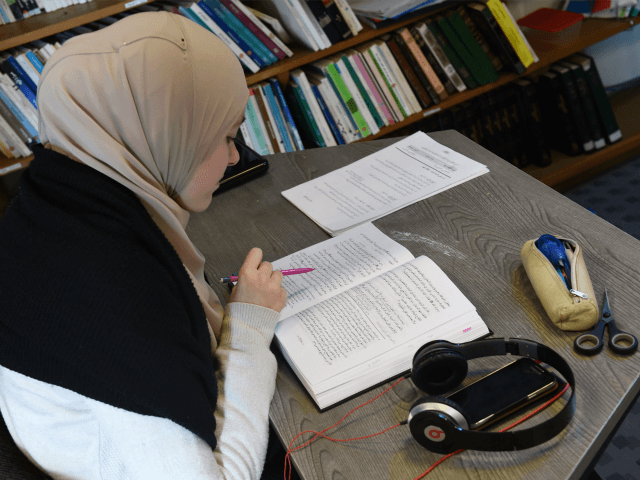Thousands of Muslims in the West are turning to Islamic scholars in Pakistan for lessons on the Quran delivered via Skype. For less than £20 a month they can get daily one to one lessons on the correct Arabic pronunciation of the Quran’s verses, and in-depth tuition on correct Muslim practices.
Some 50 or so centres are already operating in Pakistan, at least one of which has over 1,000 pupils, all being taught online in English and Arabic by Pakistani scholars.
“It’s mandatory for every Muslim to learn the Quran and spread it to others,” Shaukat Ullah Khattak, a religious scholar who runs a seminary in northwest Pakistan told the Washington Post. “Online Koranic academies are doing a great service … and kids in the West are now taking a keen interest.”
Indeed, business is booming. Usman Zahoor Ahmed, 32, set up ReadQuranOnline.com eight years ago, with just two employees and a handful of students. He now employs 22 tutors who give lessons to around 320 people, approximately 40 percent of whom live in the USA, with the remainder mostly in Canada and the UK.
Pupils pay $25 a month for one half hour lesson five days a week. Topics covered include the correct pronunciation of Quran verses, and the proper practice of Islamic rituals, such as how to kneel to pray. Once the students have mastered these aspects they move on to translating and interpreting the Quran, which Ahmed says involves about eight years of daily lessons to fully comprehend.
“People in the U.S., Canada and U.K. are always telling us: We do have mosques, we do have proper setups, but we can never find one-on-one lessons,” Ahmed said.
Pakistan is home to around 20,000 madrassas (religious schools), making it something of a world centre for Islamic study. And although the vast majority claim to teach peaceful variations of the religion, it is already known that some are hotbeds of radicalism.
Others which proclaim to be peaceful have also produced Islamic terrorists – Tashfeen Malik, the jihadist who killed fourteen people in San Bernadino, California with her husband last December studied at a Pakistani madrassa. Investigating the school for possible links to the violence, Pakistani authorities commented that it doesn’t stand out as being particularly radical or linked to violence.
Pakistan has also gained a reputation for attracting allegations of state-sponsored terrorism, in part for harbouring known terrorists such as Bin Laden.
Yet Ahmed claims that parents in the West are turning to Pakistan as they fear what their children might be taught in Western madrassas. “In this current atmosphere, they want to know what kind of teaching is being provided to their children — they want the lessons in their home, where mom or father is always watching,” he said.
What is clear is that demand is high. “Our Muslim brothers abroad . . . face adverse circumstances these days,” said Jibran Ahmed, (unrelated), who is in the process of setting up his own online madrassa. “My academy and teachers will try to prepare better Muslims who can be of better use to the society that they live in,” he insisted.
Meanwhile, Usman Zahoor Ahmed is relaxed about the increase in competition.
“There will be 3 billion Muslims around the world [by 2100], and they are all our market,” he said. “All you need is a computer, microphone, headset and Skype.”

COMMENTS
Please let us know if you're having issues with commenting.